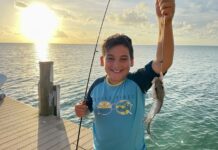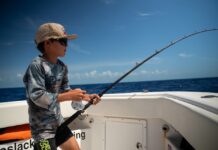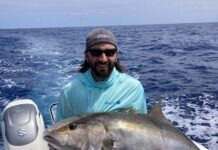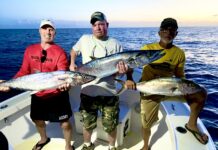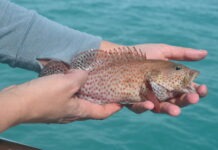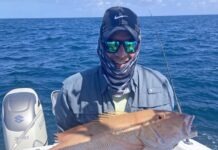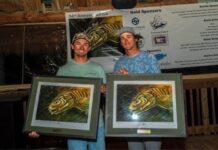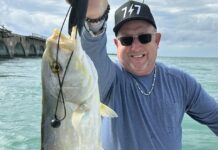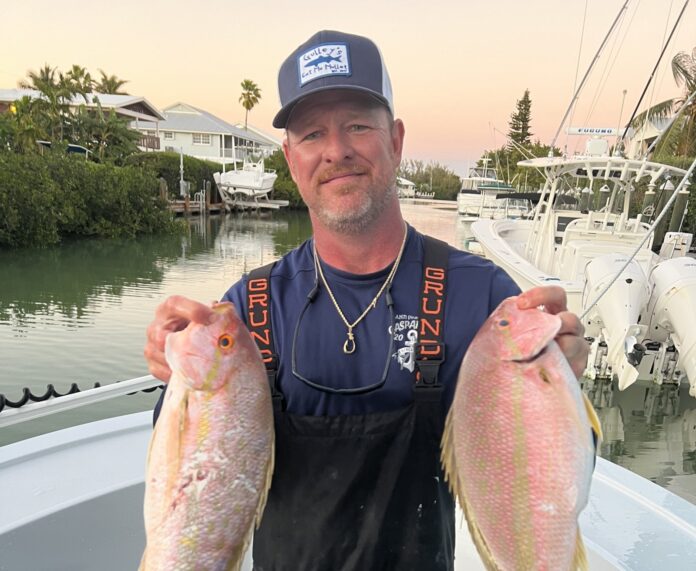
The Florida reef stretches more than 350 miles from north of Key Largo to the southwest of Key West. It’s the third-largest reef system in the world, behind only Australia’s Great Barrier Reef and the Mesoamerican Barrier Reef System off the Caribbean coasts of Mexico, Guatemala, Honduras and Belize. It’s also the only living reef system in the United States.
All three reef systems were built by living organisms, but over the years, many of those organisms have died, to the point where some question whether areas of all three reefs are dead. Challenges faced by all three systems include oil spills, cyclones, changing water temperatures, coral bleaching and overfishing, among many other factors.
Doing our part here in the Keys means keeping fuel and oil out of our water, anchoring carefully, disposing of fishing line properly, not littering and staying within legal bag and size limits.
We love to fish the reef between 15 and 125 feet deep, depending on the time of year and what species we are targeting. This time of year we like to stop at the reef before heading offshore to catch ballyhoo, speedos and other baitfish. It can give our clients a chance to warm up their fishing skills and catch some yellowtail snapper and other species prior to fighting a big gamefish offshore. Stopping at the reef first before we go offshore is also a great test to see if any clients get seasick prior to a 30- or 40-mile venture.
Many anglers like to anchor up on the reef when coming back from an offshore trip. Many times, especially times when offshore fishing is slow, the reef can provide a grand finale on the day.
Below are a few tips for reef fishing:
- Line: use the lightest monofilament fluorocarbon that you can get away with. Go light, get tight. Go thick, can’t trick. Our water on the Florida reef is so clear that the lighter your monofilament fluorocarbon is, the more bites you will get. However, if you go too light you’ll lose too many fish during the fight. Of course we wish we could use 100-pound test all the time, and if the fish bit on 100-pound test the same way they hit on 10-pound test we would hardly ever lose a fish. At Ana Banana, we’ve done a good bit of research and development fishing chum lines on the reef, where you can be hit by everything from a quarter-pound yellowtail to a mutton snapper, barracuda, shark, cobia grouper or dozens of other species. We experimented with 10-pound and 12-pound line. We got a lot of bites, but lost a lot of fish. Then we bumped it up to 15-pound test. We didn’t get as many bites, and we were still getting broken off a lot. We increased to 20-pound test and didn’t break off nearly as much, but had a lot less action. It was obvious to us that 20-pound test spooked off a lot more fish. Then we dialed it down to 17.5-pound test, and that’s what we fished the reef with today. It seems to be the perfect happy medium with many bites and not losing many fish.
- Weights and hooks: Like the line, use the smallest possible weights and hooks that will hold your catch. Know your tides and currents, and how to adjust your weights accordingly.
- Chum: Use a chum ring and use green Tournament Master chum.
- Bait: “Match the hatch.” Do your homework and figure out what your target species is naturally feeding on during that time of year. If a species feeds on pilchards, don’t use shrimp.
Spring is one of the best times of the year to fish and explore the Florida reef. Good luck and enjoy.
To book a charter with Ana Banana, call or text Capt. Joel at 813-267-4401 or Capt. Jojo at 305-879-0564, or visit anabananafishing.com.





